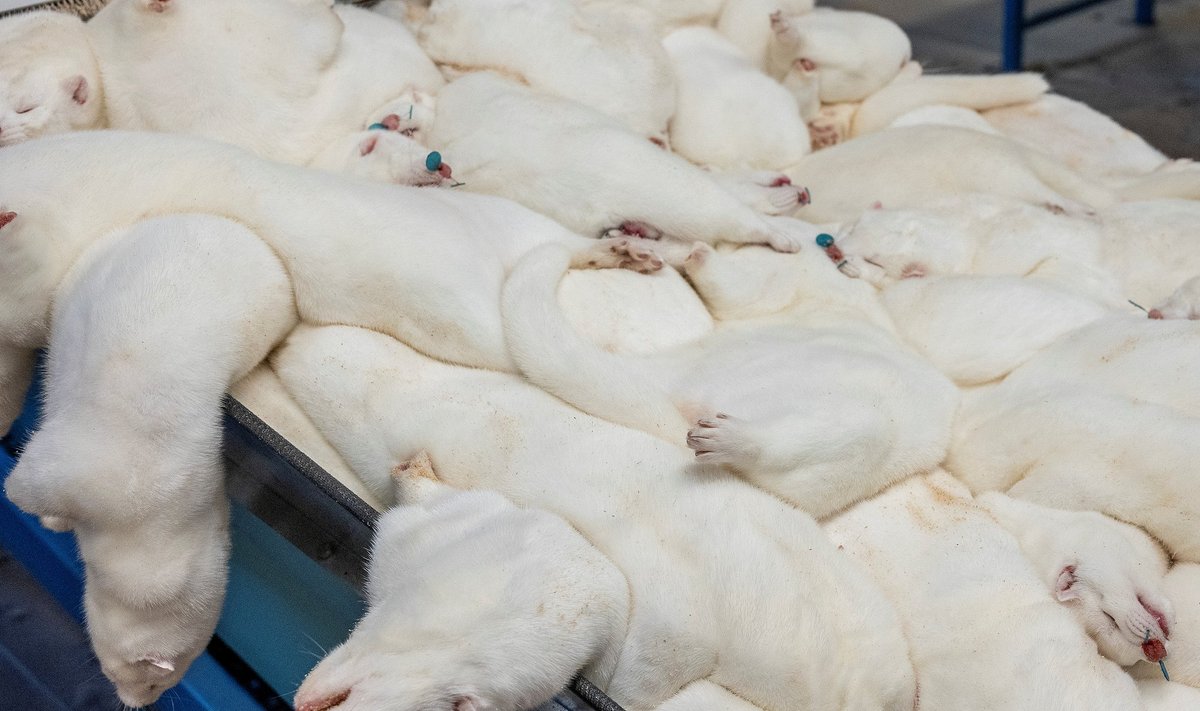Officials say more than 1,200 infected minks have died on the farm since the coronavirus was first detected there last week.
The farm is planning to cull 40,000 minks to contain the spread of the virus, and the state of emergency will allow it to claim compensation for the killing of the fur animals.
Vytautas Kaminskas of Jonava Municipality said there is no clear practice yet on how to curb the spread of coronavirus on mink farms, because this is the first case in Lithuania, so they are trying to gather as much information as possible about the virus and its spread among animals.
People will not be affected by the state of emergency, because the measure is targeted specifically at the farm where the virus was detected, he said.
Diana Daina Sutoviene, head of the Jonava unit of the State Food and Veterinary Service (SFVS), said more than 1,200 infected minks had already died of coronavirus and another 600 had been put down.
The farm is currently dealing with the coronavirus outbreak on its own, but the state of emergency will allow using municipal resources if needed, she said.
It is estimated that the farm had over 59,000 minks at the time when the coronavirus was found there. Some 40,000 of them are to be culled, but the farm will try to preserve the rest to be able to continue breeding in the future, according to the SFVS inspector.
The farm is planning to cull some 4,000-4,500 minks daily starting Wednesday, Sutoviene said, noting that it is lacking the workforce to do the work, because four of its workers have tested positive for the coronavirus and several more are in self-isolation.
The SFVS said last week that the virus had detected after testing samples from the Jonava mink farm that is owned by Danmink. Vilkijos Ukis, the company's main shareholder, is also keeping its minks on the holding.
Two people working at a mink farm in the northern district of Radviliskis tested positive for the coronavirus at the end of last week. The director of Siaures Lape, the farm's owner, has told BNS that all of the farm's 50,000 minks were killed on Friday, but not because of the virus, but because the animals had reached the required maturity.
Lithuanian mink breeders are required to provide the service with information on dead animals every week.
Lithuania banned imports of live minks from coronavirus-affected countries in mid-November.
Eighty-six farms in Lithuania currently have over 1.6 million minks, according to the SFVS.
